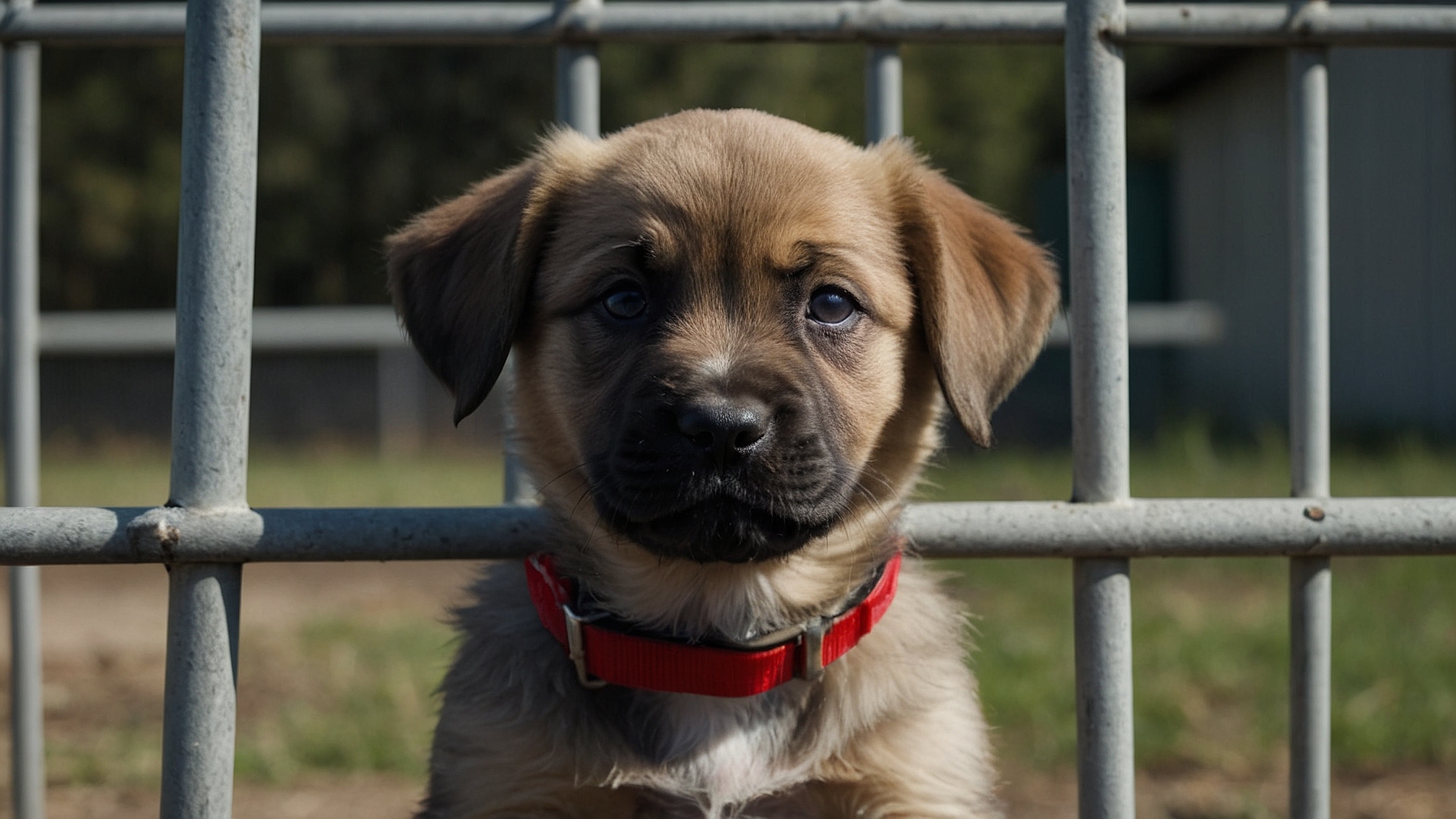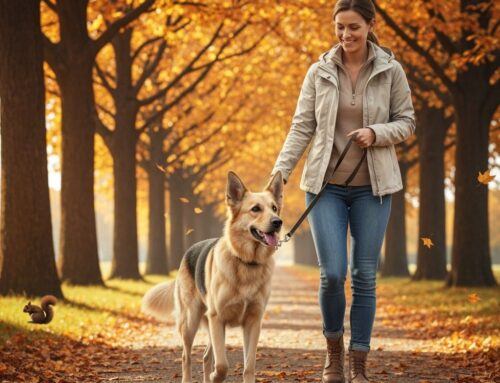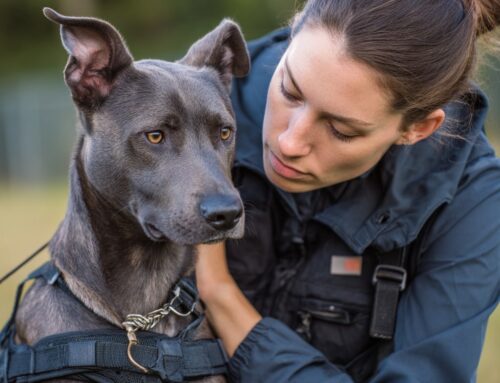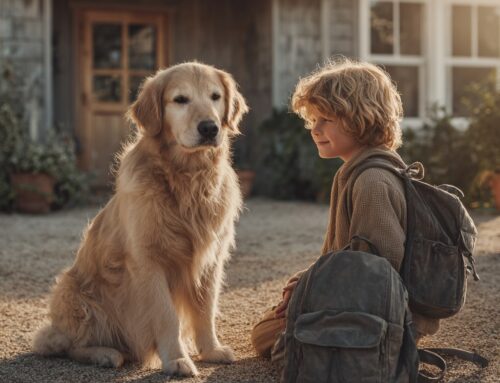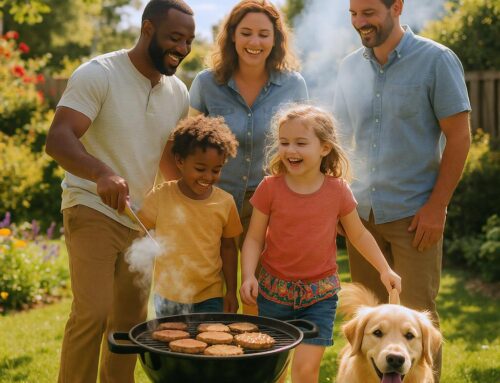While having a puppy is always exciting, sometimes managing a new puppy will have its difficult moments, especially when it comes to their behavior. Effective puppy behavior management is crucial not only for your sanity but also for the well-being and development of your furry friend. We’ll explore proven techniques and strategies to help you navigate and shape your puppy’s behavior in a positive and effective manner.
Understanding Puppy Behavior
Before diving into specific techniques, it’s essential to understand the basics of normal puppy behavior. Puppies, like human infants, are curious, energetic, and in need of guidance. They explore the world through their senses and learn through interactions with their environment and caregivers. This natural curiosity can lead to behaviors such as chewing, biting, and accidents indoors. Also with any kind of dog and dog behavior, we have to remember each dog is unique and while one technique may work today or with other dogs in your family, you still have to be patient and understanding of your pup and listen to their needs and pivot techniques when necessary. Always watch their body language, we want your pups to go out into the world and be happy, but they don’t need to meet everyone or be trained in certain ways that trigger them. Remember all dogs are different and you’ll have to approach each pup differently as you go through training their behavior.
Positive Reinforcement: The Foundation of Training
Positive reinforcement is a cornerstone of effective puppy training. This technique involves rewarding your puppy for desirable behaviors, thereby increasing the likelihood of those behaviors recurring. Here’s how you can implement positive reinforcement effectively:
- Use of Rewards: Treats, verbal praise, and affection are powerful motivators for puppies. When your puppy sits when asked or goes to the bathroom outside, immediately reward them with a treat and praise for their positive behavior.
- Timing: Timing is crucial in positive reinforcement. The reward should be given promptly after the desired behavior to reinforce the connection between the behavior and the reward.
- Consistency: Consistency is key in training. All family members and caregivers should use the same commands and reward system to avoid confusion for the puppy so they don’t revert back to the undesirable behavior.
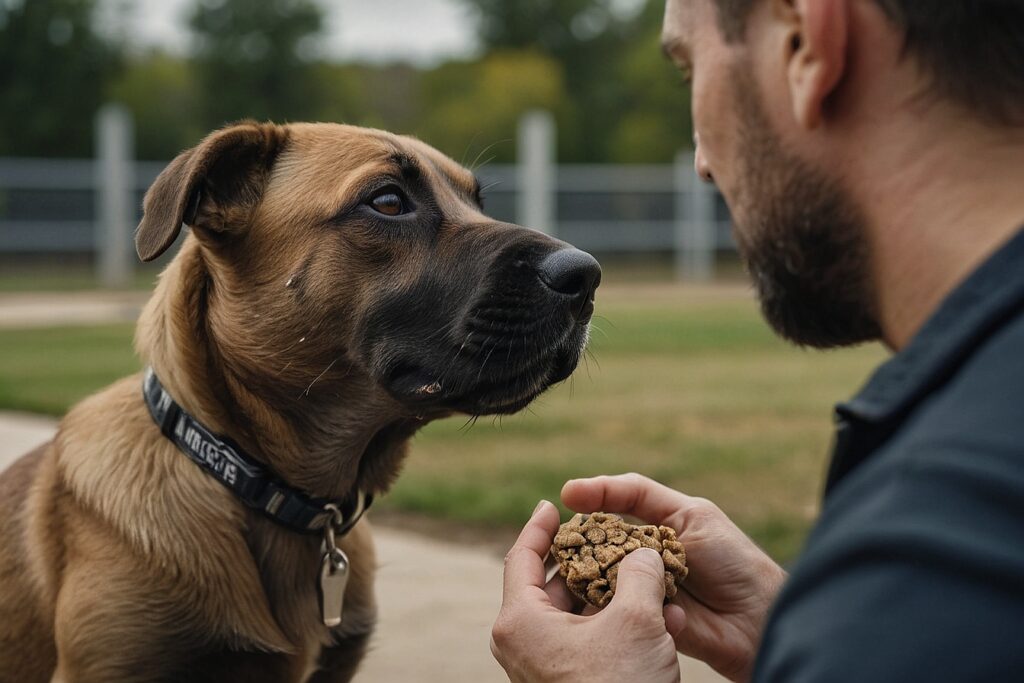
Basic Commands Training
Training your puppy to respond to basic commands not only facilitates communication but also helps in managing their behavior effectively. Start with fundamental commands such as sit, stay, come, and leave it.
- Short Sessions: Keep training sessions short and engaging, ideally 5-10 minutes several times a day. Puppies have short attention spans, so frequent short sessions are more effective than long, exhaustive ones.
- Positive Reinforcement: Use treats and praise to reward your puppy when they correctly follow a command. For instance, when teaching “sit,” gently guide your puppy into the sitting position and immediately reward them with a treat and praise.
Crate Training: Creating a Safe Haven
Crate training is a valuable tool for both house training and managing your puppy’s behavior when you’re not around. A crate serves as a den-like environment where your puppy can feel safe and secure. Here are some tips for successful crate training:
- Introduction: Introduce the crate gradually and positively. Place treats and toys inside to encourage your puppy to explore and enter the crate willingly.
- Positive Association: Make the crate a positive place by feeding your puppy meals inside and providing comfortable bedding.
- Gradual Alone Time: Start with short periods of crate time for your puppy and gradually increase the duration as your puppy becomes more comfortable.
House Training: Establishing Good Habits
House training (or potty training) is one of the first challenges new puppy owners face. Consistency, patience, and positive reinforcement are key to successfully house training your puppy.
- Establish a Routine: Take your puppy outside frequently, especially after meals, naps, and playtime. Puppies have small bladders and need frequent opportunities to relieve themselves.
- Praise and Reward: When your puppy eliminates outside, immediately praise them and offer a treat. Positive reinforcement helps your puppy understand that going outside is the desired behavior.
- Accidents: If accidents happen indoors (and they will!), avoid punishment. Instead, clean the area thoroughly of this accident to remove any scent markers that might attract your puppy back to the same spot.
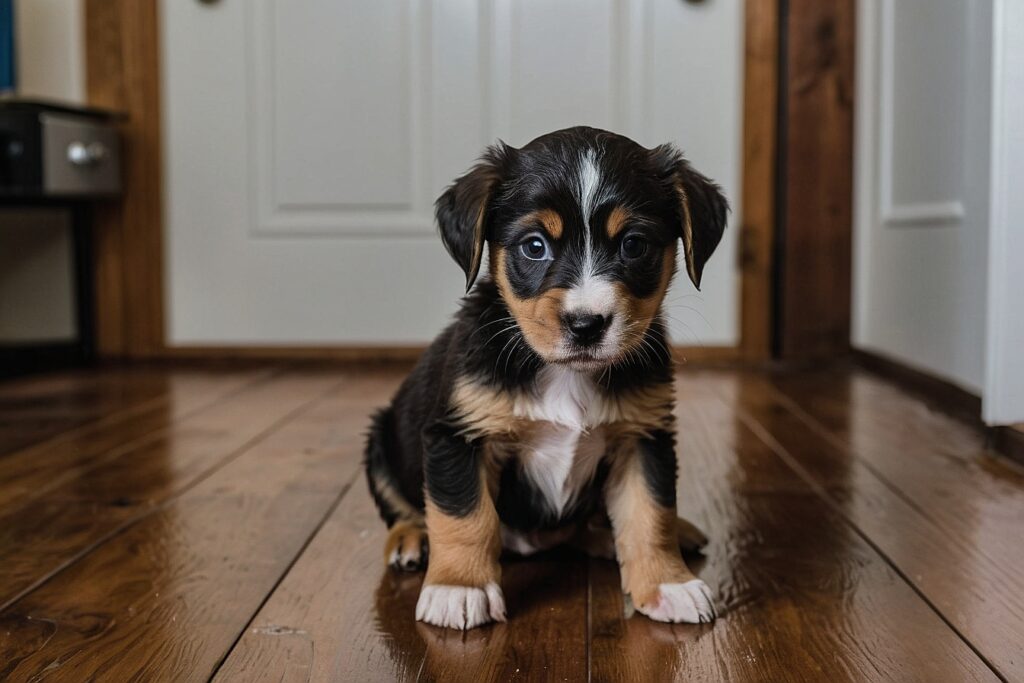
Proper Socialization: Building Confidence and Resilience
Proper Socialization plays a crucial role in shaping your puppy’s behavior and temperament. Exposing your puppy to a variety of people, other animals, environments, and experiences during their critical socialization period (typically between 3 weeks and 4 months) helps them grow into a well-adjusted adult dog. Your pups should go out in the world and be happy. But always be mindful of your pup’s body language. Step back from things that trigger stress — introduce it from a distance. Not every pup needs to meet all people and other dogs. Be your puppy’s leader and champion.
- Positive Experiences: Ensure that all socialization experiences are positive and not overwhelming for your puppy. Gradually introduce them to new sights, sounds, and situations. Lead them by example and know when your puppy might be getting a bit stressed out.
- Playdates: Arrange playdates with other friendly dogs to help your puppy learn appropriate social skills and they could learn more from other puppies too.
- Handling Exercises: Get your puppy used to being handled gently by people of all ages. This includes touching their paws, ears, and gently restraining them, which can help prevent fear-based aggression. But always watch your puppy and make sure they aren’t feeling too stressed or scared. Take a step back when needed and keep it simple.
Managing Puppy Chewing and Bite Inhibition
Puppies explore the world through their mouths, which can lead to unwanted chewing and biting behaviors. Teaching bite inhibition and providing appropriate outlets for chewing are essential.
- Yelping Technique: If your puppy bites too hard during play, yelp loudly to mimic the sound another puppy would make for the unacceptable behavior. Immediately stop playing and ignore your puppy for a few moments to teach them that gentle play is appropriate.
- Chew Toys: Provide a variety of chew toys made specifically for puppies. Rotate the chew toy regularly to keep your puppy interested and prevent boredom.
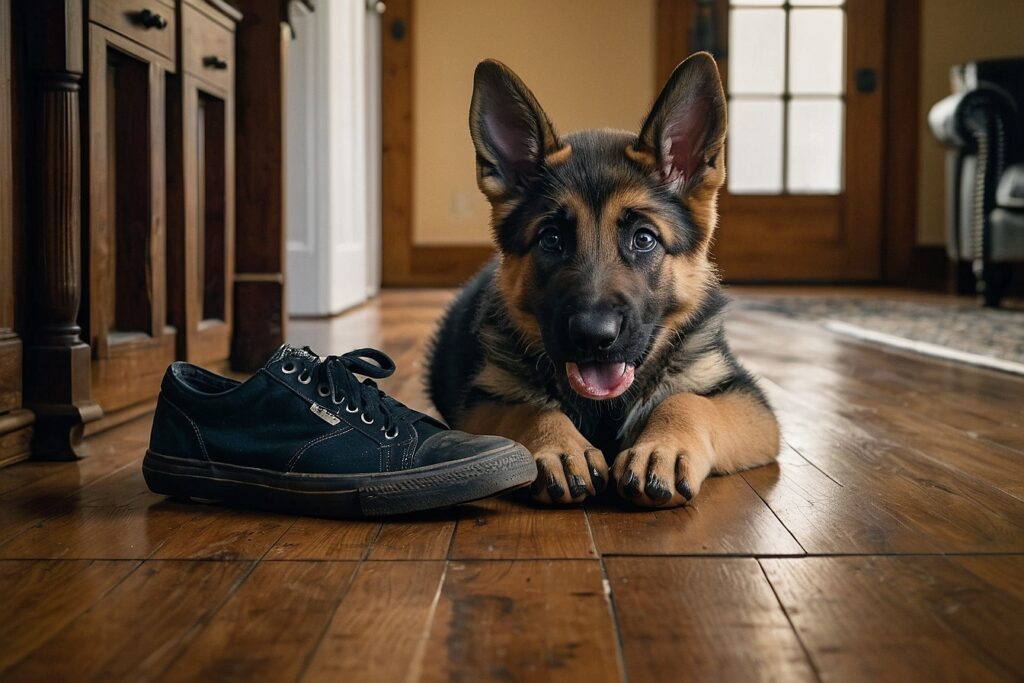
Exercise and Mental Stimulation: A Balanced Approach
Puppies have boundless energy that needs to be channeled appropriately. Regular exercise and mental stimulation are essential for their physical and mental well-being.
- Physical Exercise: Take your puppy for walks, play fetch, or engage in supervised play sessions in a safely enclosed area.
- Mental Stimulation: Use puzzle toys, treat-dispensing toys, and training sessions to challenge your puppy’s mind and keep them entertained. Mental stimulation prevents boredom and reduces the likelihood of destructive behaviors.
Consistency and Patience: Keys to Success
Consistency and patience are vital throughout your puppy’s training journey. Remember that puppies are learning constantly, and mistakes are part of the learning process.
- Routine: Establish a consistent daily routine for feeding, exercise, training, and playtime. Predictability helps your puppy feel secure and understand what is expected of them.
- Patience: Training takes time, and every puppy learns at their own pace. Stay patient and positive, celebrating small successes along the way.
Seeking Professional Help When Needed
While many behaviors can be managed through consistent training and positive reinforcement, some situations may benefit from professional guidance.
- Puppy Classes: Enroll your puppy in reputable puppy socialization classes where they can learn alongside other puppies in a controlled environment.
- Consulting a Veterinarian or Trainer: If you encounter persistent behavior issues or concerns about your puppy’s health, seek advice from a veterinarian or certified dog trainer.
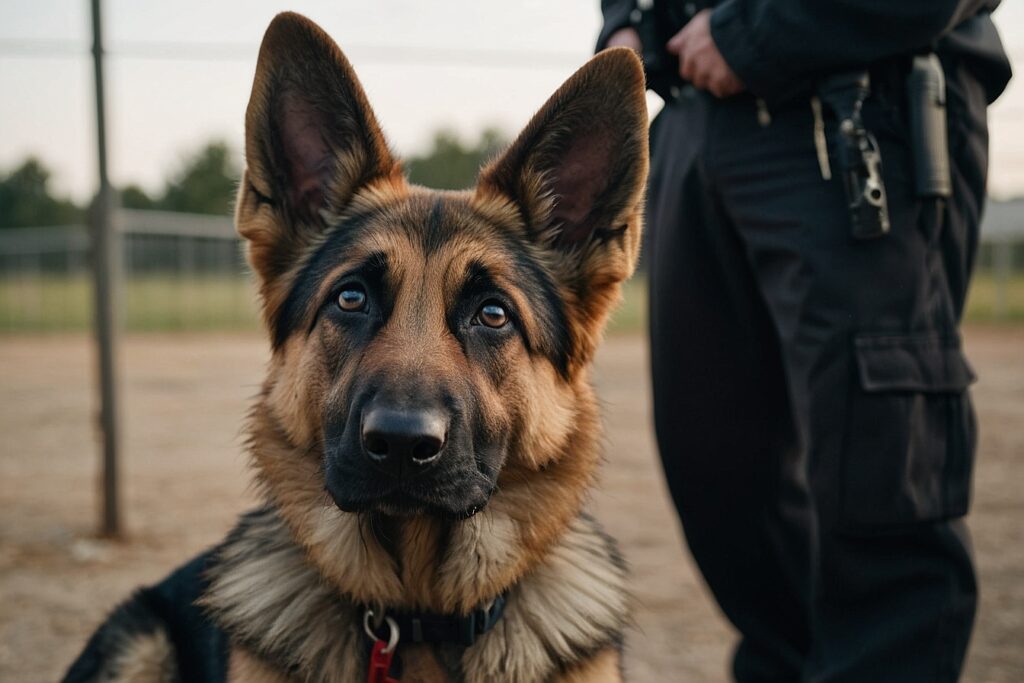
Working on Puppy Behavior Management Techniques
Bringing a puppy into your life is a joyful experience filled with love, laughter, and growth. By understanding their behavior, employing positive reinforcement techniques, and providing consistent training and proper socialization, you can help your puppy develop into a well-mannered and happy adult dog. Remember, effective puppy behavior management is not just about correcting unwanted or unacceptable behaviors but also about nurturing a strong bond built on trust and mutual respect. With patience, consistency, and a little bit of love, you and your puppy will embark on a rewarding journey together. Incorporate these techniques into your daily interactions with your puppy, and watch as they blossom into a beloved companion who enriches your life in countless ways.
And if you’re looking for that extra help, Performance K9 Training and Boarding’s Yappy Puppy Training Program stands out as a tailored solution for pet owners facing the challenge of training young puppies. Designed specifically for puppies under five months old who are not yet eligible for the traditional board and train program, the Yappy Puppy Program offers a thoughtful bridge for training classes. By providing two private lessons before the official start of board and train, it ensures that even the youngest puppies receive foundational training and guidance. This proactive approach not only prepares puppies for future training but also sets a solid behavioral groundwork, fostering a positive learning experience from the very beginning. Performance K9 Training and Boarding’s commitment to comprehensive canine education shines through in their innovative programs, supporting both puppies and their owners on the journey to a well-trained and well-adjusted companion. Contact us today for a free consultation to see if your puppy is the right fit for our program!



